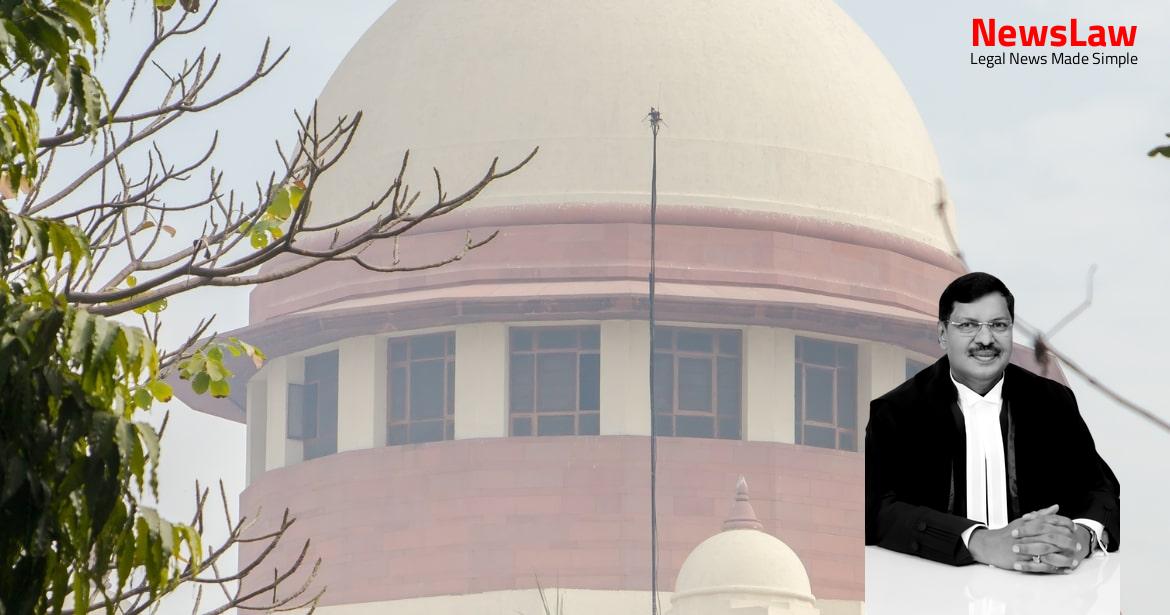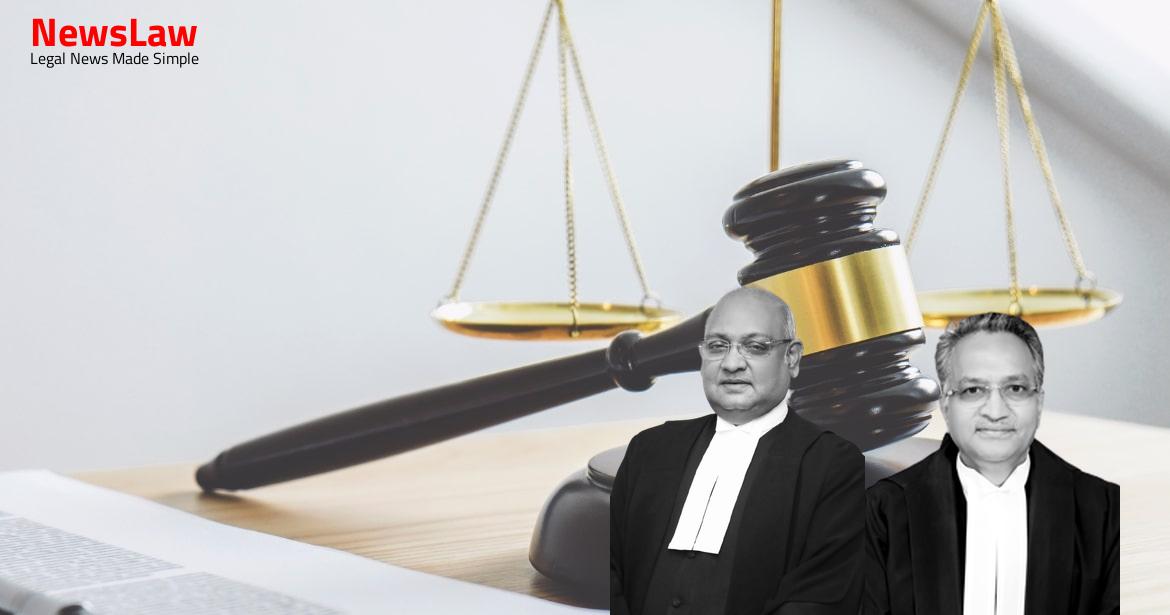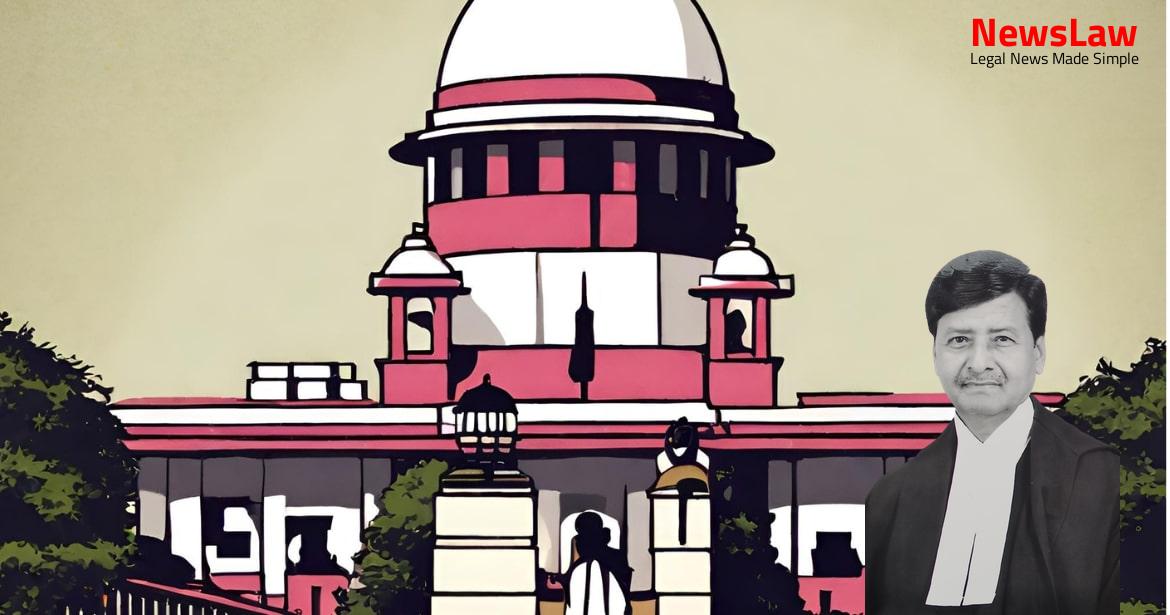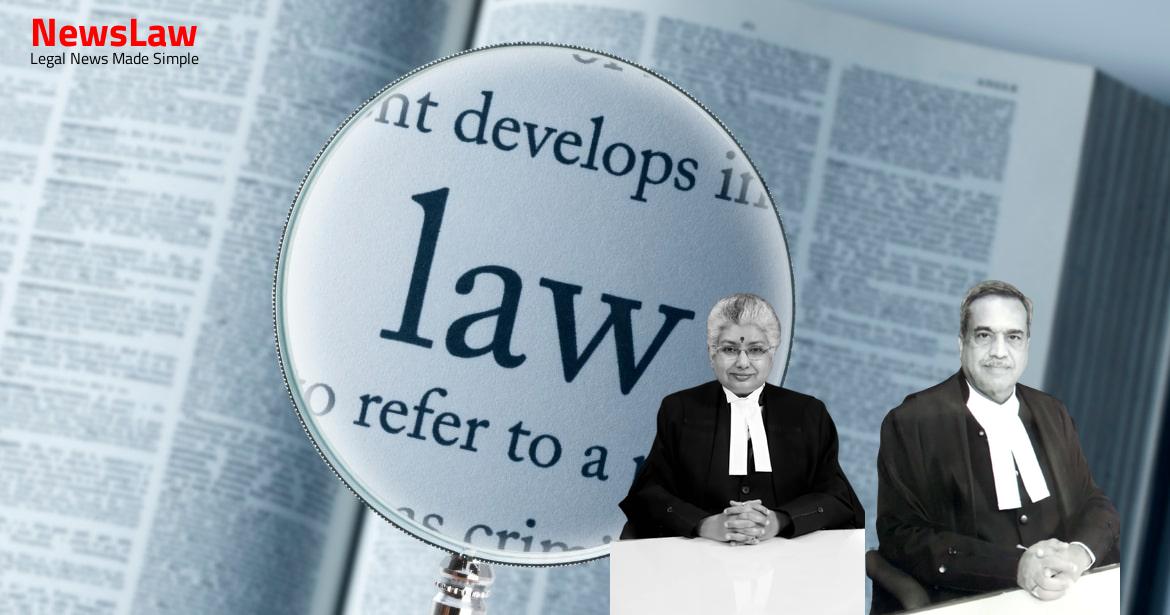In a significant legal ruling, the Supreme Court of India addressed a contentious dispute between the Municipal Council and the Divisional Revenue Commissioner regarding land allotment. The case delves into the intricacies of tender processes, administrative actions, and the role of the State Government in such matters. The Court’s decision impacts the handling of immovable property and sets new precedents for future similar cases.
Facts
- A Municipal Council invited tenders for allotment of land on lease for 30 years.
- The Notice Inviting Tenders (NIT) was published in specific daily newspapers.
- An objection was raised by two members of the Municipal Council regarding the tender process under Section 323 of the Act.
- The objection was rejected by the Collector.
- There was correspondence between the Urban Administrative and Development Department and the Divisional Revenue Commissioner.
- The Divisional Revenue Commissioner found the tenders not competitive.
- Appellant was directed to deposit 25% of the bid amount, which was done by the Municipal Council.
- Bids were opened in the presence of all bidders, and the Municipal Council’s bid was found to be the highest.
- The Division Bench allowed the writ petition, quashing the earlier order and directing the approval for land allotment in favor of the Municipal Council.
- A Review Petition was filed thereafter.
- The Collector stayed further proceedings of the tender process and directed the NIT to be published in specific newspapers.
- The Collector returned the proposal to invite tenders again.
- The Collector decided to send the proposal for approval of the State Government.
- The land in question measured 163176 sq. ft. situated in Scheme No.1A, Neemuch.
- The Municipal Council informed the successful bidder that its bid was accepted, for an offer of Rs.5,81,00,106/-.
- Division Bench of Madhya Pradesh High Court, Bench at Indore passed a Judgment and Order on 31.08.2017
- The writ petition filed by Original Name was allowed by the Division Bench
- Order dated 05.07.2018 rejected the Review Petition filed by the appellant
Also Read: Review Petition filed by Landowners against State of Haryana
Analysis
- The Corporation has the authority, with the previous sanction of the State Government and for recorded reasons, to transfer any immovable property to a bidder other than the highest bidder.
- No land exceeding fifty thousand rupees in value can be sold or conveyed without the prior sanction of the State Government.
- Every sale or conveyance of property belonging to the Council is bound by the conditions and limitations set by the Act or any other applicable law.
- Clause (ii) of sub-section (3) of Section 109 of the Act is relevant in this context.
- The Corporation, with State Government’s approval and for documented reasons, can transfer immovable property to a bidder other than the highest bidder. For such transfers by lease, a reasonable premium and annual rent must be paid.
- Streets, public places, drains, and irrigation channels cannot be sold, leased, or alienated except as per the rules set.
- The Chief Municipal Officer has discretion to grant leases of immovable property belonging to the Council, subject to specified conditions and reporting requirements.
- Immovable property generating income cannot be transferred without following auction or sealed offers procedures.
- Special sanctions from the President-in-Council or the Council may be granted for specific leases or transfers of immovable property.
- Properties held in trust by the Council have restrictions on their leasing or sale to ensure the trust’s purpose is not adversely affected.
- Transfers of immovable property with income-generating potential can only be made to the highest bidder at a public auction or through sealed offers, with exceptions requiring State Government approval.
- If the Corporation deems it inappropriate to conduct a public auction or invite sealed offers, transfers can still occur with State Government approval.
- The scope of judicial review of an administrative action is limited to instances of illegality, irrationality, or procedural impropriety.
- The High Court can only review the decision-making process, not the validity of the decision itself.
- The Commissioner found that the bids were non-competitive due to possible cartel behavior among tenderers.
- The Municipal Council’s proposal was rejected due to lack of competitive rates and insufficient competition.
- The State Government authorized the Commissioner to transfer the land after re-examination.
- The Commissioner acted in the public interest by pointing out anomalies in the proposal and advising a fresh tender process.
- The High Court’s interference is warranted only when a decision is illegal, irrational, or leads to manifest injustice.
- The Division Bench’s finding of arbitrariness was unfounded as both the Commissioner and State Government acted in the public interest.
- The court’s duty is to examine legality, not the fairness of a decision or policy.
- The High Court’s conclusion on the impugned decision not being in public interest was not supported by facts.
- The State Government authorized the Commissioner to transfer the land, allowing for the initiation of fresh tender processes.
- The Division Bench overlooked subsequent correspondence between the State Government and Commissioner in their decision.
- The necessity of prior State Government sanction for selling land over fifty thousand rupees was highlighted.
- Article 226’s power can quash unreasonable orders, but the decision to re-tender for wider competition is in the public interest.
- An administrative action is subject to control by judicial review if there is an obvious misinterpretation of a relevant statutory provision, ignorance, or disregard of the law, or if the decision is clearly wrong in law.
- The grounds upon which an administrative action can be reviewed include illegality, irrationality (Wednesbury unreasonableness), and procedural impropriety.
- The principle of proportionality may also be recognized as a ground for review in certain cases.
- If a decision is so arbitrary and capricious that no reasonable person could have arrived at it, it can be struck down by a writ court.
- If a decision cannot be rationally supported by the materials on record, it may be considered as perverse.
- The court should intervene if a decision-making authority exceeds its powers, commits an error of law, breaches natural justice rules, reaches a decision no reasonable tribunal would have reached, or abuses its powers.
- The court’s concern is with the manner in which decisions were taken and whether something has gone wrong to require its intervention.
- Errors of law must be apparent on the face of the record to warrant intervention through judicial review.
- If a statutory rule can reasonably be construed in different ways and one interpretation has been adopted, it may not be open to interference by the court unless the error is self-evident.
- The test for determining whether a decision is vitiated by an error apparent on the face of the record is whether the error is self-evident or requires examination and argument to establish.
- High Court decision set aside by the larger public interest and to increase Municipal Council revenue.
- High Court interference unjustified as no parameters existed for interference.
- High Court failed to consider relevant material before making a decision.
- Impugned Orders not sustainable in law as no illegal, improper, unreasonable, or irrational decisions were made by the State Government or Commissioner.
Also Read: State vs. Selvamani: Upholding Fair Trial Conduct
Decision
- Municipal Council directed to refund the amount deposited by Original Name along with 6% interest per annum
- Appeals allowed, impugned orders dated 31.08.2017 and 05.07.2018 quashed and set aside
- No order as to costs in the circumstances of the case
- Original Name’s petition dismissed
Also Read: Land Dispute Legal Battle: Vijay Laxman Bhawe vs. P & S Nirman Pvt. Ltd.
Case Title: MUNICIPAL COUNCIL NEEMUCH Vs. MAHADEO REAL ESTATE
Case Number: C.A. No.-007319-007320 / 2019



